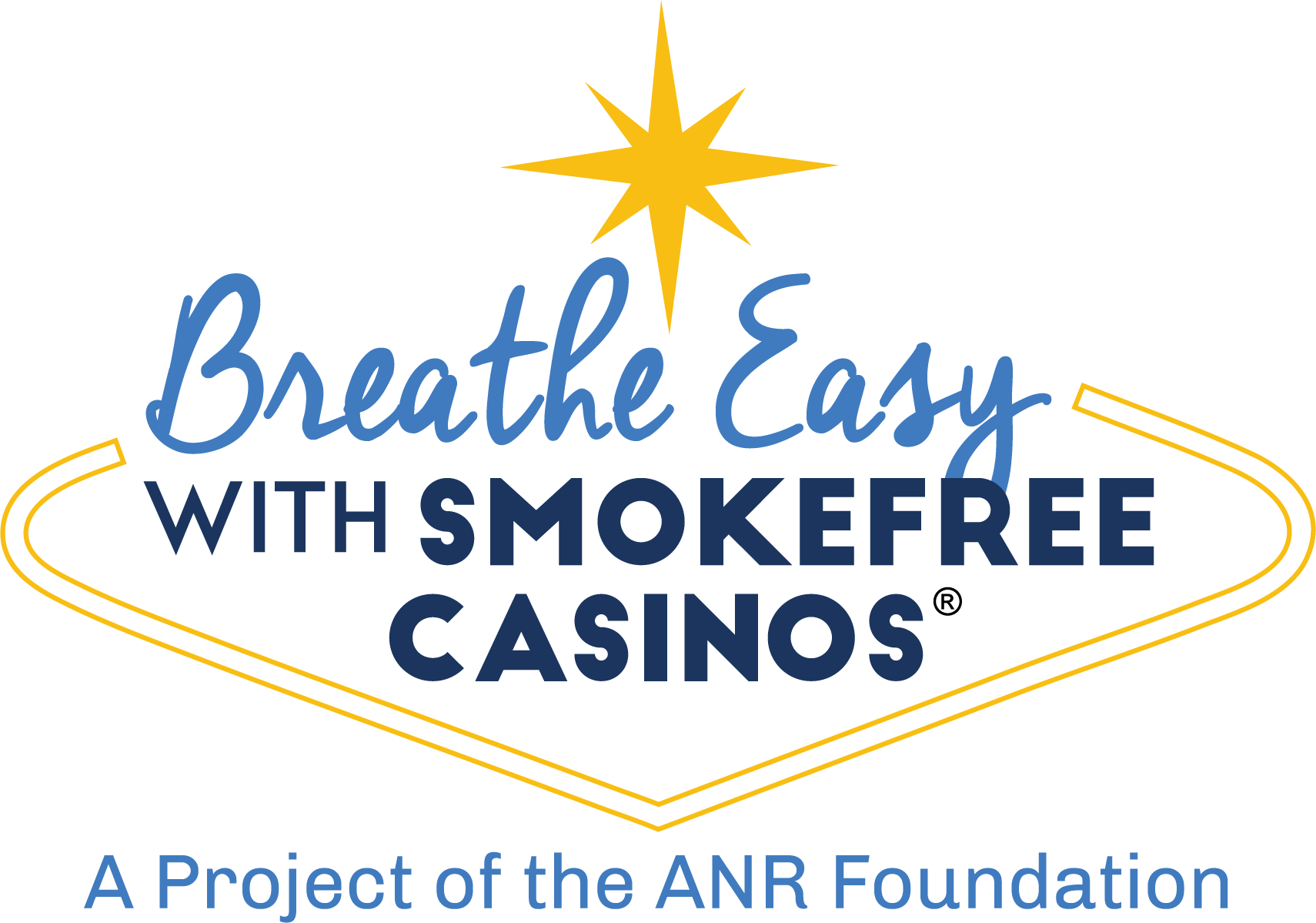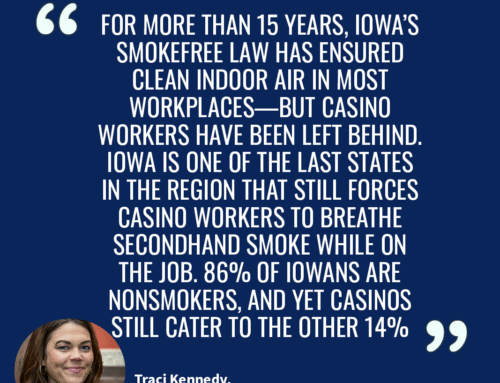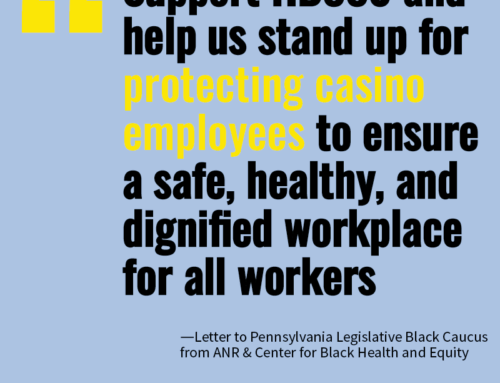ANR Foundation applauds Governor Phil Murphy and the State of New Jersey for taking the important step to reopen Atlantic City casinos 100% smokefree indoors for the health and safety of workers and the general public.
With this action, New Jersey joins other states in its regional gaming market, including Maryland, New York, and Delaware, that already have successful smokefree casinos. Requiring business to be smokefree is a vital step for reopening safely.
Many of Atlantic City’s competitors are already smokefree indoors
Today there are nearly 1,000 smokefree U.S. casinos and gambling venues as a result of the leadership of many cities, states, and sovereign Tribes. With the smokefree reopening guidelines in New Jersey and Michigan, 22 states now require smokefree air inside all commercial gaming venues.
More than 100 casinos have adopted new smokefree indoor air policies as part of their reopening plans. Most recently, Seneca Resorts and Casinos in New York, Mohegan Sun Casino and Resort in Connecticut, and Twin River Casino in Rhode Island announced plans to reopen smokefree.
Some in the gaming industry have criticized New Jersey’s smokefree reopening guidelines, borrowing from Big Tobacco’s playbook and making anecdotal predictions of economic harm.
When Atlantic City previously went smokefree for 30 days in 2008, casino workers finally had the right to breathe safe air in their job. However, the ordinance was rescinded under intensive industry lobbying pressure. Despite the reversal of the law, gaming revenue kept spiraling down instead of resurging because current gambling trends were already on the decline due to competition from new (or expanded) gaming in Pennsylvania and other traditional “feeder markets” for Atlantic City. People in D.C or Philadelphia didn’t need to drive to Atlantic City anymore for a casino.
Atlantic City gaming revenues losses were never about indoor smoking rules: it was because of new casinos opening in nearby states such as Maryland, Pennsylvania, and New York. Also, the 2008 economic recession meant a significant reduction in discretionary spending for casino patrons. Gaming revenue at that time was down across all markets regardless of indoor smoking status.
Secondhand Smoke and COVID-19
In the era of COVID, indoor smoking is an urgent respiratory health hazard that can be easily addressed by shifting smoking to outdoor areas and away from staff.
Secondhand smoke is a risk factor for susceptibility to more severe COVID-19 symptoms because of the demonstrative impact it has on underlying health conditions including heart disease, diminished lung function, and associated risk of respiratory illnesses. In a casino, pulling down masks to blow smoke and respiratory droplets creates even more of a health gamble in the context of COVID-19.
Notably, casino ventilation systems do not address the health hazards of secondhand smoke.
A lot has changed on the issue of indoor smoking for the gaming industry since early partnership with Big Tobacco via schemes such as the Philip Morris Options Project that sought to undermine smokefree casino policies. Today, 90% of Gen-Z and Millennials and 92% of older Americans age 65+ are nonsmokers. Most casino staff and customers are nonsmokers. Smokefree environments help attract more nonsmokers and support the growth of non-gaming amenities. It also bolsters HR and operations measures, such as improved employee retention, reduced absenteeism, and reduced cleaning costs related to servicing indoor ashtrays and/or smoke filters. In this current environment, smokefree indoor air shows that the health and safety of staff and guests is a priority.
After the 1918 flu epidemic, public spittoons disappeared from hospitality venues. With COVID-19, it’s time to finally end indoor smoking in hospitality gaming workplaces too.
For more information, visit https://smokefreecasinos.org/reopening-casinos-smokefree-the-new-normal/






